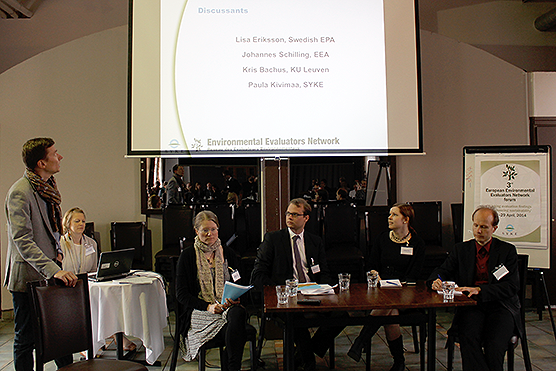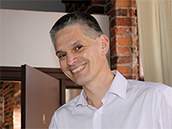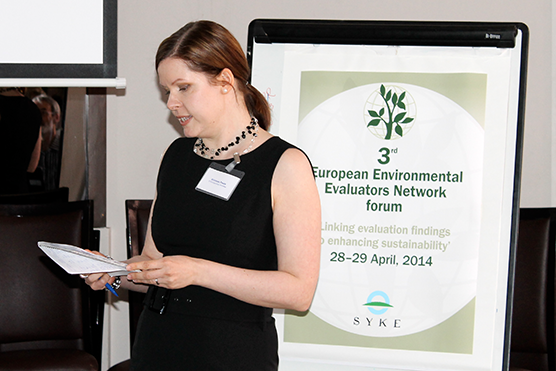
SYKE hosted the Annual Forum of the European Environmental Evaluators’ Network (EEEN) in Helsinki at the end of April. The forum brought together evaluation researchers, environmental impact assessors and the users of evaluations to discuss and develop the applicability of evaluations and their potential to serve long-term environmental goals.
Active participation by decision-makers brought a critical reality check to the discussions in the forum. The Auditor General of Finland, Dr. Tuomas Pöysti, stressed that environmental impacts do not catch the attention of decision-makers if they are presented as isolated findings. Instead, evaluations should address those problems and knowledge needs that have been identified in real-world decision-making processes. The results should be communicated in a language that is accessible and familiar to the decision-makers.
The importance of language and terminology was also brought up by Mr. Alexandre Paquot from the DG CLIMA of the European Commission. He said that talk about risks and threats should be replaced, or at least supplemented, with talk about opportunities. Paquot said that predictability is what decision-makers seek from research and evaluations. Also Prof. Hans Bruyninckx, Executive Director of the European Environment Agency highlighted the need to identify risks.
The experiences of decision-makers are of current importance, as attention is increasingly drawn to very general signals and new methods are needed for critical and rigorous processing of knowledge.
 Professor Andrew Jordan
Professor Andrew Jordan
The message of Professor Andrew Jordan from the University of East Anglia resonated with the views of the decision-makers. He maintained that evaluations should identify the changing dynamics generated by environmental policy and climate change even though they are increasingly governed in polycentric networks. According to Jordan, the fragmentation of environmental problems and the growing level of activity by local communities challenge evaluation, which has traditionally been perceived as government driven and serving public decision-making.
“Administration has to critically evaluate its own activity as well” said Research Director Laura Höijer from the Ministry of the Environment of Finland. To prove her point, she presented a number of recent evaluations that the Ministry has assigned, and identified ways in which the findings can support the ongoing reorganizing of Finland’s sector research.
The venue of the next forum has not been decided yet but the network is committed to continuing the series of these inspiring meetings. The critical discussion about evaluation research, environmental impact evaluations and practical examples motivated and excited the participants on the sunny island of Uunisaari.

Paula Kivimaa (pictured) hosted the forum and coordinated the meeting together with Tiina Jääskeläinen. Numerous SYKE researchers contributed to the successful event.
More information
Senior Researcher Paula Kivimaa, Finnish Environment Institute SYKE, tel. +358 295 251 283, firstname.surname@ymparisto.fi
Text: Eeva Primmer
Photos: Petrus Kautto and Eeva Primmer